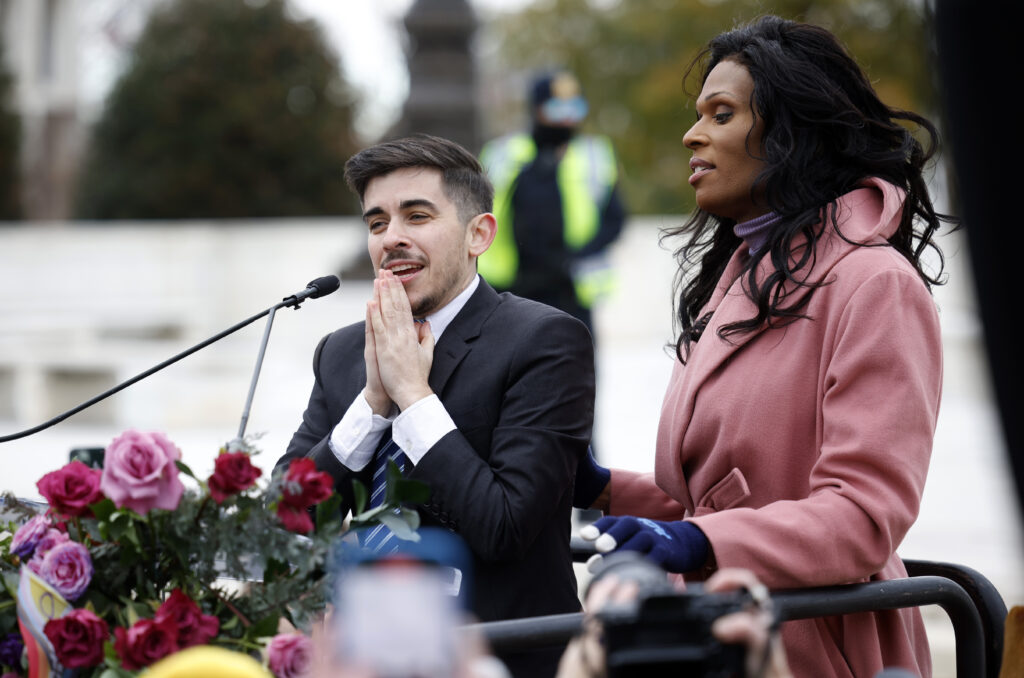Supreme Court’s Docket for the New Year: TikTok, Ghost Guns, and ‘Gender Treatments’ for Children
The justices are poised for a consequential 2025, with a docket filled with high-profile cases.

The Supreme Court will have a busy 2025, with a docket full of landmark cases for the upcoming year, expected to make decisions on everything from TikTok to ghost guns to transgender issues.
The justices are set to rule on several significant cases already on the calendar, each with wide-ranging implications. On January 10, they will hear arguments for TikTok v. Garland, a case that significantly impacts technology regulation and free speech.
The Court will hear a challenge by the enormously popular social media platform to the “Protecting Americans From Foreign Adversary Controlled Applications Act,” passed by Congress last April.
The legislation states that the social media app could be banned due to concerns of National Security if their parent company, the Communist China-based ByteDance, does not divest its ownership from the American version of the app within nine months after the new law takes effect on January 19.
TikTok is central to the marketing efforts of American businesses who want to reach young people, though members of Congress argue that it’s too dangerous to give a Chinese company access to so much data about Americans and to have so much access to American eyeballs.
ByteDance has contested the new law. In their petition to the Supreme Court, attorneys argued that “Congress’s unprecedented attempt to single out applicants and bar them from operating one of the most significant speech platforms in this Nation presents grave constitutional problems that this Court likely will not allow to stand.”

The petition was in response to a ruling from a federal appeals court on December 6 which sided with the government, saying that TikTok presents a “compelling security interest.”
Last week, President Trump urged the Supreme Court to block the law from taking effect in a legal filing to allow his incoming administration to “negotiate a resolution to save the platform while addressing national security concerns.”
The justices are also expected to hand a decision down on a case brought before them in October concerning the legality of so-called ghost guns — unregistered, homemade weapons made without serial numbers from separate parts.
The challenge to Garland v. VanDerStok, from firearm kit manufacturers and some retailers who sell them, is a response to the Fifth Circuit of the United States Court of Appeals upholding a ruling by a federal district judge at Fort Worth earlier this year that the ATF had exceeded its authority by mandating that weapons parts kits and partially completed gun frames should be classified as firearms.

The Biden Administration has appealed the matter to the Supreme Court.
The potential implications of their decision are significant. Earlier this summer, the Court struck down the ATF’s ban on Bump Stocks, which enable semi-automatic rifles to mimic a fully automatic weapon.
The case has higher significance in the wake of the murder of UnitedHealthcare chief executive Brian Thompson, whose alleged murderer, Luigi Mangione, is believed to have used a self-assembled ghost gun in the shooting.
In another key case, the Court will issue its ruling on a case it heard in early December on whether states can ban so-called “gender treatments” – such as puberty blockers and hormonal treatments as well as surgeries – for minors.

The ACLU and the Biden Administration are challenging a Tennessee law banning such procedures for minors.
In United States v. Skrmetti, the plaintiffs argue that the law discriminates on the basis of sex. Attorneys for Tennessee — one of 24 states that have banned gender-affirming care for children in recent years — argues that it has a legitimate interest in regulating treatments such as giving young children puberty blockers and other treatments due to concerns about efficacy and risk.
“Laws like Tennessee’s are not benign regulations of medical care; they are discriminatory efforts to exclude transgender people from the protections of the Constitution,” the co-director of the ACLU’s LGBTQ & HIV Project, Chase Strangio, the lead attorney on the case, said last October.
Mr. Strangio, who is a transgender male, added, “These bans represent a dangerous and discriminatory affront to the well-being of transgender youth across the country and their constitutional right to equal protection under the law.”

In a statement released in October after filing a response brief with the Supreme Court, Tennessee’s attorney general, Jonathan Skrmetti, defended the state’s ban.
“The federal government, in its arguments to the Supreme Court, puts its faith in a false and manufactured consensus that ignores the many doctors, States, and countries who have looked at the evidence and determined these treatments are too risky for kids,” he said.
“The Constitution does not prevent the States from regulating the practice of medicine where hot-button social issues are concerned.”
The justices are expected to uphold the Tennessee law, which would be a major blow to the powerful transgender lobby, which argues strenuously that children and teenagers should be allowed to undergo medical gender procedures.

